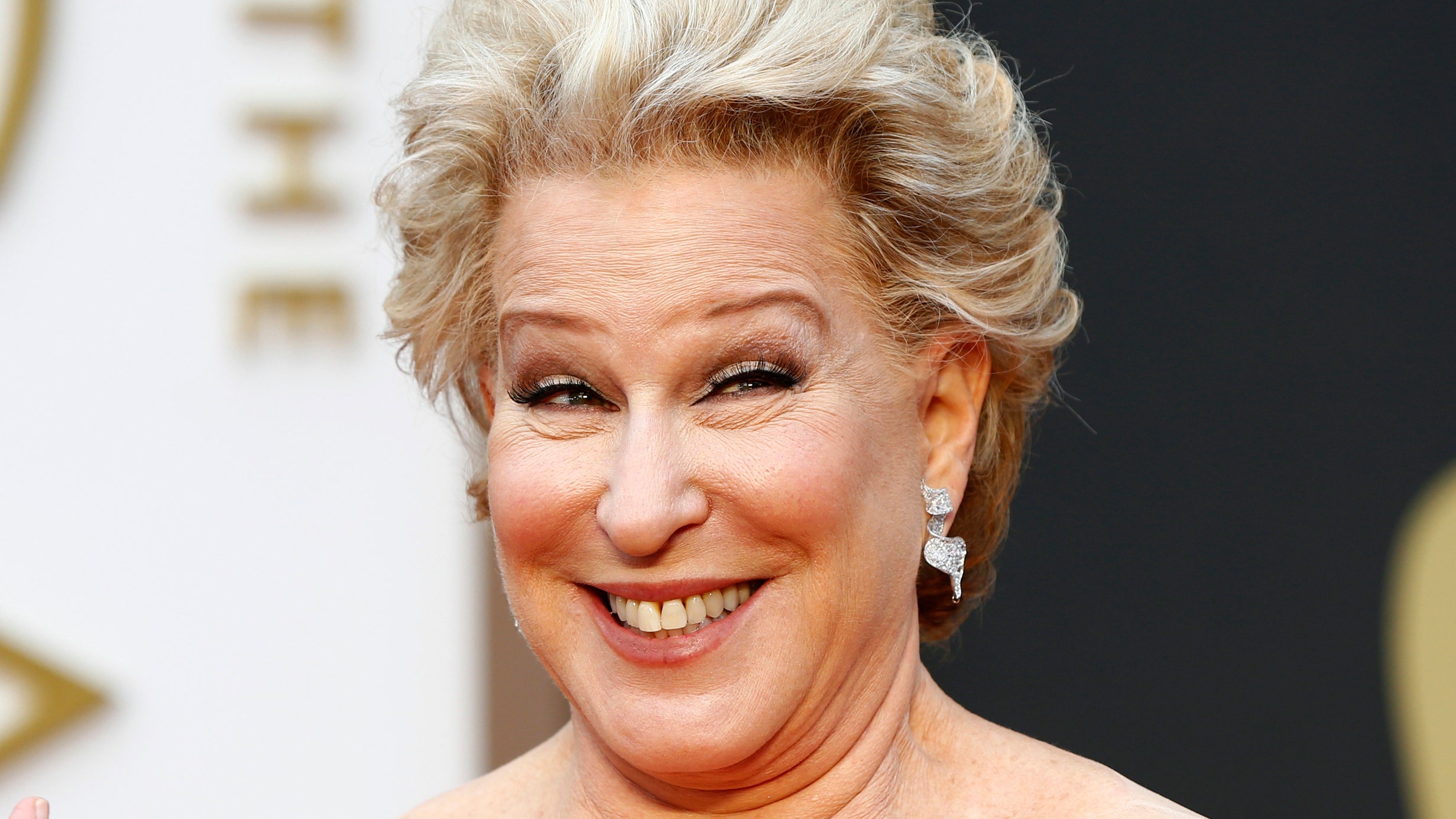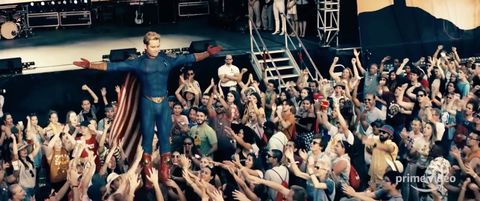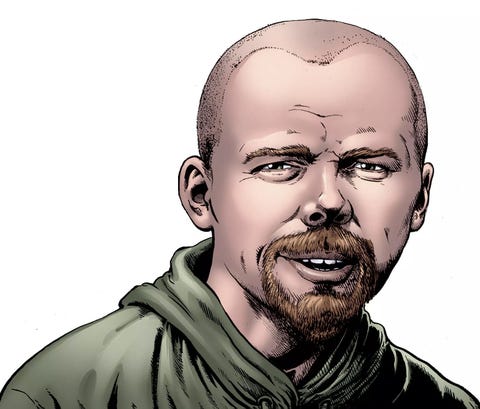(Spoiler warning: This essay gives away key plot details from Quentin Tarantino’s “Once Upon a Time … in Hollywood.”)
Several weeks ago, Devon Sawa tweeted a photo of a multiplex marquee advertising several new movies, among them a remake of “Aladdin” and new installments of the “Toy Story,” “Men in Black” and “Godzilla” franchises. “Dear children of today,” he wrote, “like it or not, you’re really ‘90s kids.” An actor who came of age in the ’90s himself, Sawa was hardly the only one to notice the movie industry’s bittersweet embrace of that fondly remembered decade, a phenomenon that could be chalked up to a dearth of originality, an excess of nostalgia or both.
Wild originality and intense nostalgia are by now well-known hallmarks of the work of Quentin Tarantino, up to and including his haunting new film, “Once Upon a Time … in Hollywood,” now playing in theaters. Although his creative and commercial vitality has endured well into the present century, it’s worth recalling that Tarantino, now 56, made his reputation as the ultimate ’90s kid. Starting with the bloody one-two punch of “Reservoir Dogs” (1992) and “Pulp Fiction” (1994), his exhilarating pop fusion of old-school cinephilia and new-wave attitude remains one of that era’s defining cultural legacies.
Neither of those two movies is being remade or rebooted, which is a relief, since both have already spawned enough gun-toting, time-twisting neo-noir copycats to last a moviegoing lifetime. The irony is that Tarantino himself might be the ultimate copycat artist, hailed and derided as a demented and irrepressible B-movie pasticheur who delights in excavating long-buried canons and subcanons of thrillers, westerns and exploitation movies. His reverence for these oft-neglected genres is entirely sincere, even (and perhaps especially) when it becomes a delirious game of one-upmanship — as it does in “Kill Bill,” with its elaborate, scholarly riffs on blaxploitation, chopsocky, spaghetti westerns and splatter horror. Love him or hate him, there was an undeniable kick in seeing Tarantino push his niche genre enthusiasms into the mainstream.
Advertisement
But times change, as do the attentions of a volatile industry and a fickle public. If Tarantino’s early movies were justly praised as being ahead of their moment, in more recent years he has seemed content to fall defiantly behind the pop-cultural curve. These days, anyone who still genuflects at the altar of cinema amid our putative streaming-service renaissance runs the risk of being labeled hopelessly retrograde. And whether it’s Tarantino’s insistence on shooting on 35-millimeter celluloid or the film education he received behind the counter of a video store (“A what?” you can almost hear today’s younger audiences asking), his brand of cinephile cool looks ever more proudly out of step with prevailing trends.
John Travolta and Samuel L. Jackson in the movie "Pulp Fiction."
(Linda R. Chen / Miramax Films)
Which is not to say that Tarantino isn’t to blame for his own perceived obsolescence. His seeming inability to move past his shtickier impulses, to get out of his own way, has only fueled the antagonism of his sharpest critics — those who have long taken issue with his love of violence, his appropriations of black and Asian culture, and his characters’ liberal use of a particular racist epithet. Charges of misogyny followed his last picture, “The Hateful Eight,” with its blood-spitting psycho murderess played by a brilliant Jennifer Jason Leigh. The structural and thematic repetitions in his work, wrapped around familiar preoccupations with race, violence, honor and revenge, have led even some of his admirers to wonder if he has anything new to say.
One of the pleasures of “Once Upon a Time … in Hollywood,” his loveliest, mellowest, most contemplative movie in years, is that it lays that doubt firmly to rest. Tarantino may seem impervious to change, but he has notably shaped this entire picture around a moment of radical transformation. A sprawling, meandering fever dream of 1969 Los Angeles, the movie unfolds through the eyes of a fading, deeply insecure TV star, Rick Dalton (Leonardo DiCaprio), and his cool-as-a-cucumber stunt double, Cliff Booth (Brad Pitt). It’s a funny, melancholy valentine to actors, and to an industry suspended between the last gasp of the old-school studio system and the rise of New Hollywood — which would in turn give birth to the ‘90s independent film boom, making this movie something of a stealth prequel to Tarantino’s own career.
Advertisement
As you might expect, the movie pays obsessive, fetishistically detailed homage to its late-’60s moment. It throws a spotlight on classic L.A. locations like Musso & Frank, Grauman’s Chinese Theatre and the long-shuttered Van Nuys Drive-In. Its Cielo Drive celebrity mansions are crammed with fabulous Old Hollywood memorabilia (figuring out which movies and TV shows are fake is part of the fun). Tarantino being Tarantino, there are off-color jokes, drive-by stereotypes and hitchhiking, dumpster-diving hippies, some of whom account for the movie’s miles and miles of lovingly photographed bare feet. And in its most audacious touch, the picture grapples — troublingly, outrageously, resonantly — with the horror of the Charles Manson murders, becoming the latest Tarantino joint to blur the boundaries between actual and cinematic carnage.
But for all this busy scene-setting, “Once Upon a Time … in Hollywood” also tells another story, one that transcends its milieu and channels its own weird haze of ’90s nostalgia. In its palpable love for L.A., its buddy-comedy pleasures and its melancholy lament for the onset of middle age, the movie often recalls the low-key vibe and deep feeling of Tarantino’s great 1997 feature, “Jackie Brown.” If it feels like his most personal film since that one, it may be because you sense that Tarantino is, on some level, telling his own story. His characters’ foibles and insecurities may speak to a fast-changing industry paradigm, but they also speak to the long, imperfect, extraordinary and all-too-finite arc of his own career. (The director has said that this picture, billed as his ninth, will be his penultimate work.)
Margot Robbie in the movie "Once Upon a Time ... in Hollywood."
(Andrew Cooper/Columbia Pictures)
This is, somewhat astonishingly, the first movie pairing of DiCaprio and Pitt, two legendary stars who rose to fame in the ’90s, and who together hold the camera with the ease of career-long screen partners. The film revels in its actors’ beauty — DiCaprio gets to posture like a TV cowboy, Pitt gets to strip his shirt off — but it also chips away at their vanity, showing the cracks in their no longer youthful golden-boy façades. Rick, a so-so actor and a desperate alcoholic, is undergoing a major crisis of confidence. Cliff, a tough guy with a pit bull and a dark past, has little going for him besides his role as Rick’s stunt double, driver and best friend.
Tarantino, DiCaprio and Pitt were all on the red carpet for the film’s Cannes world premiere, which took place exactly 25 years after that of “Pulp Fiction,” leading some to entertain the fantasy of Tarantino pulling off a repeat Palme d’Or win. But it was not meant to be: Although “Once Upon a Time … in Hollywood” was well received, it left the festival’s closing awards ceremony empty-handed. It also prompted a critical question at its press conference — which in turn drew a sharp rejoinder from Tarantino — for allegedly giving short shrift to its third major character, Sharon Tate, the Hollywood actress and then-wife of director Roman Polanski who became the Manson cult’s most famous victim.
That mild Cannes controversy struck me as misguided, insofar as the picture’s tribute to Tate, played with soulful expressiveness by Margot Robbie, is one of its most exquisitely moving gestures. But it was hardly the worst blowback one could have expected for a project that had courted outrage from the moment it was announced, drawing charges of tone-deafness and insensitivity from a public horrified by the very idea of Tarantino taking on the Manson murders.
And that was in July 2017, months before the downfall of the director’s longtime distributor, Harvey Weinstein, and the arrival of a new era of #MeToo accountability. A steady cascade of outrages followed: There was Uma Thurman’s painful account of Tarantino’s alleged mishandling of a key stunt on “Kill Bill,” as well as a resurfaced 2003 Howard Stern interview in which Tarantino could be heard defending Polanski (a briefly seen character in this movie) in the matter of his 1977 sexual assault case.
Advertisement
Even for those of us who cherish Tarantino’s work, it was hard not to wonder if this incorrigible and idiosyncratic artist, who defined the ’90s and flourished well into the 2000s, was now fatally out of step with the cultural moment. Whether Tarantino was being unfairly canceled or rightly held to account, you couldn’t help wonder if time was finally passing him by.
* * * * *
But is it, really? Truth be told, Tarantino’s films have never had much use for standard definitions of time, whether they’re shoving linear chronology in a blender or rewriting history for their own brutally subversive ends. “Pulp Fiction,” set in the mid-’90s but indebted to the ’70s in its spirit, soundtrack and hairstyles, shuffles time the way a card dealer shuffles a deck. What makes the movie more than a clever parlor trick is that every narrative zig and zag turns out to be motivated by an underlying moral logic, a belief in some semblance of law and order in a world of unfettered criminality.
That moral logic, blunt and simplified though it may be, is at the heart of nearly every Tarantino movie. Justice, which he views as interchangeable with revenge, is his great theme, and time is his structuring principle. In a sense, time is revenge in a Tarantino movie: It is the force that will violently bend and buckle in order to redress the wrongs of the past.
Time doesn’t heal all wounds; it inflicts fresh ones, drawing blood from those who deserve it. Time will twist back on itself, seeking out the dishonorable thief in “Reservoir Dogs” and allowing a dead man to walk again, briefly, in “Pulp Fiction.”
Time can tear the very fabric of a story asunder: “Kill Bill” might have been divided into two parts for cynical commercial reasons, but the split couldn’t help but underscore the stakes — revenge, after all, is worth the wait. Time can repeat itself, as it seems to do in Tarantino’s other bifurcated vengeance-is-hers thriller, “Death Proof,” replaying the same tale of one man’s predatory violence with drastically different outcomes.
Time can alter the course of history, carving out parallel realities in which the Jewish resistance can set the Third Reich ablaze and a black man can overthrow the antebellum South. “Once Upon a Time … in Hollywood” belongs in their company. Apart from the obvious nod to Sergio Leone, the title signals that we are watching a fairy tale, another blatantly ahistorical fantasy to set alongside “Inglourious Basterds” and “Django Unchained.” (The first chapter of “Inglourious Basterds,” you may recall, is titled “Once Upon a Time in Nazi-Occupied France.”) And like those two pictures — and if you wish to preserve the purity of the experience, you should truly read no further — the film will culminate in a jaw-dropping act of payback, a vanquishing of evil followed by a restoration of order.
Eli Roth and Brad Pitt in the movie "Inglourious Basterds."
(Francois Duhamel/The Weinstein Co.)
The extraordinary poignancy of this particular fairy tale derives from the tension between what we know happened and what Tarantino cheekily suggests might have happened. He grants us the illusion of time reversing itself. He doesn’t just restore the character of Sharon Tate to life; he grants her the happy ending she was cruelly denied. It’s a “what if?” dream that pierces even more deeply than Tarantino’s earlier revisionist fantasies, because this time it’s not just about a gleeful Nazi-whupping spectacle. It’s about finding salvation, redemption from a world gone terrifyingly helter-skelter. If time equals revenge equals justice, then a justice of sorts is undeniably achieved in the final scenes of “Once Upon a Time … in Hollywood.”
Advertisement
And what justice will time bring, if any, for Quentin Tarantino? As even his exceptionally charmed career bears out, real life isn’t a fairy tale, and the crude but satisfying comeuppances that he lays out for his characters seldom apply beyond the parameters of the movie screen. His stories may be replete with obvious heroes and villains, but the real-life Tarantino persona does not offer us the comforts of an easy rooting interest, the clean demarcations of good and evil. His lusts and his loves, his obsessions and his blind spots are the same as they ever were and perhaps always will be. His talent, too.
Like any obsessive time keeper, Tarantino seems to have determined in advance when his own Hollywood career will end. His 10th and final feature is rumored to be a fresh chapter of the “Star Trek” franchise, and if it comes to pass, it will be fascinating to see if his telltale games with time continue in outer space. Still, it would be hard to imagine a more fitting note for Tarantino to end on than “Once Upon a Time … in Hollywood,” not least because it feels like such a fond farewell to the industry that created him. It’s the work of a filmmaker who knows that time is short, his own included, even if the movies are forever.
https://www.latimes.com/entertainment-arts/movies/story/2019-07-26/quentin-tarantino-once-upon-a-time-in-hollywood-lost-time
2019-07-26 14:15:00Z
52780339106690






